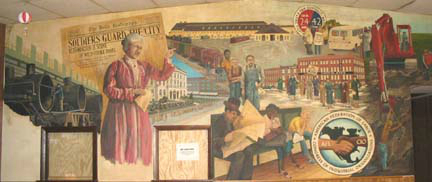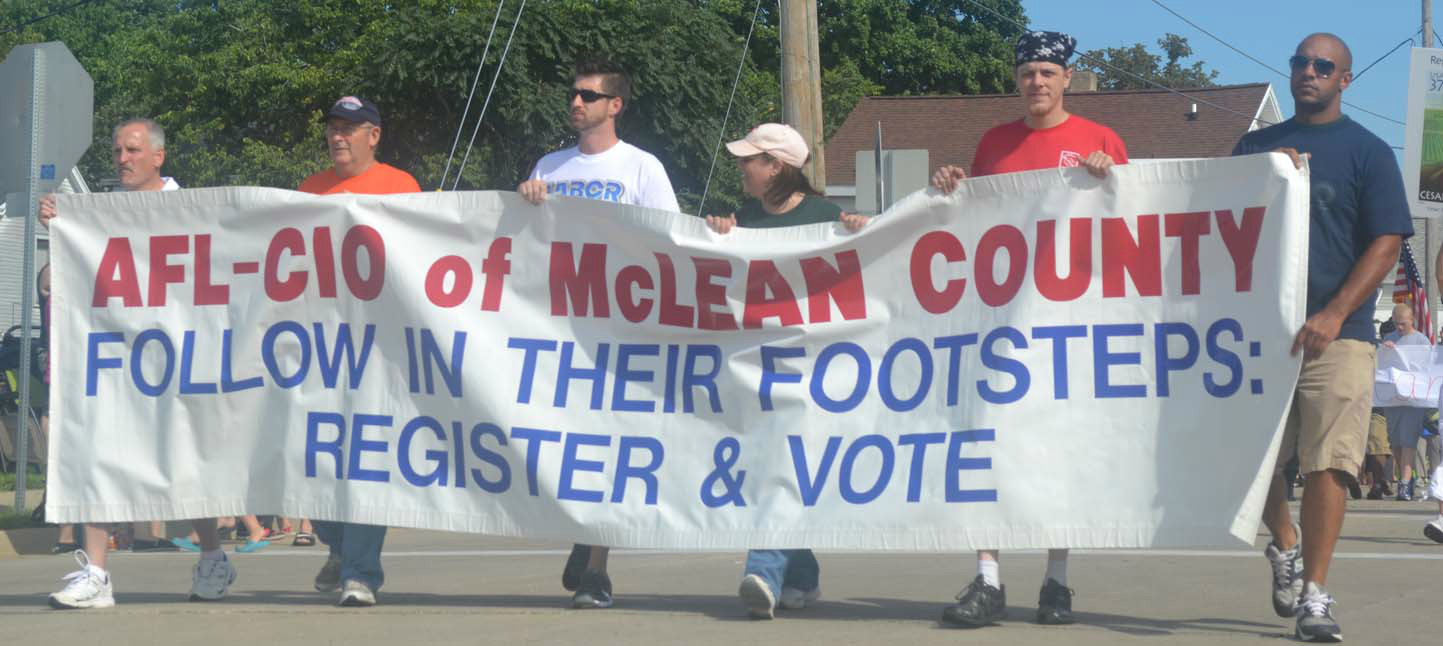
For most of President Obama’s tenure, the White House and the nation’s labor movement have been anything but best friends.
Unions were disappointed when the White House refused to restructure banks during the financial crisis. They were exasperated by its unwillingness to protect union members’ gold-plated health care plans in the Affordable Care Act. Labor was angered by Obama’s support for for sweeping free trade agreements, and his delay in deciding whether to approve the Keystone XL pipeline.
But on Monday, Secretary of Labor Tom Perez sounded a much different note.
Perez, who has emerged as one of the leading contenders to replace outgoing attorney general Eric Holder, began remarks at the National Press Club with what seemed to be a boilerplate narrative extolling the White House’s contributions to economic progress.
Soon enough, however, he launched a full-throated endorsement of unions that has been atypical for an administration that has had decidedly cool relations with organized labor.
"Worker voice takes so many forms, and one of the most important of which is being a union,” Perez began. “When it comes to protecting collective bargaining rights in this country, we need to continue to protect those rights. And those rights have frankly come under withering attack in recent years.”
In his remarks, Perez connected declining wages to the decades-long decrease in union participation, echoing one of the factors many economists identify as behind the stagnation of median income and growing inequality. According to the Bureau of Labor Statistics, unionized workers earn $200 more per week on average than non-unionized employees.
Perez also made the macroeconomic case for stronger unions, pointing out that in Canada, where the unionization rate is more than twice what it is in America, the median income has actually grown to surpass the U.S.’s for the first time."As a guy who comes from Buffalo, New York, there is an absolutely direct relationship between the health of the middle class and the health and vitality of the labor movement,” Perez said. “I’d much rather work at the Ford plant in Louisville and make more money than the Nissan plant in Mississippi, where I’m making less money, and have less protections.”
He also announced he would travel next week to Germany to meet with Volkswagen officials to learn more about their works council model, under which a committee of workers participates in decisionmaking on issues like scheduling, training, and any downsizing that might need to happen.* Afterfailing to unionize the company outright, the United Auto Workers are trying a version of the model at VW’s plant in Chattanooga, Tenn. Unions are more woven into the corporate and political culture of Germany, Perez noted, which has created a mostly constructive working relationship.
"That works council model is a wonderful model that we should consider importing into the United States, because a works council is all about codetermination,” Perez said, suggesting that labor-management collaboration is better for companies, too.
Perez praised Southwest Airlines and UPS, as well as the labor campaigns to improve conditions for fast food workers and retail employees, whether they’re members of a union or not. “They define success not simply by the size of their membership, but by the number of people they help,” he said.
“For the first time in a long time, there’s all this worker activity happening,” said the union official. “It’s a reaction based on the change in atmosphere. That really forced them to change their rhetoric more than anything else.”Perez’s remarks aren’t the first time the administration has spoken warmly of labor. One union official, who asked not to be named in order to speak frankly about the White House, said he noticed the language shifting in Obama’s labor day speech last month. “If I were looking for a good job that lets me build some security for my family, I’d join a union,” Obama told the Milwaukee Labor Fest.
In other words: unions had won at least an acknowledgement of their role in the recovery of the middle class.
Faced with a deadlocked Congress, the White House has acted unilaterally in ways supported by unions, with Obama signing executive orders setting a minimum wage for federal contractors to $10.10 per hour, among other measures. But unions are pushing for more, including an executive order making collective bargaining rights part of the decision factor in awarding federal contracts.
“They’ve done the sticks, and now they need the carrots,” the union official said.
Though Perez showered unions with praise on Monday, however, he stopped short of endorsing them as a necessity for workers to have a voice. He began the speech, themed around “shared prosperity,” by retelling the story of Market Basket. This past summer, employees went on strike to protest the firing of Arthur T. Demoulas, the company’s beloved CEO, who was ousted in a dispute with the company’s board. After months of organizing, the workers -- rallied by middle management against their executive leadership -- got what they wanted, and Demoulas was restored.
"What we have is stronger than any union could offer,” Whelan said. "In our case, I don’t think a union would be helpful, because we treat everybody the same.”At first, using Market Basket as a poster child might seem like a slightly odd choice in such a pro-labor speech: Workers triumphing over the decisions of management without a union isn’t a demonstration that unions are necessary. Afterwards, Store Director Cindy Whelan said there had never been any union activity at the company, because employees are treated “like family.”
The good feelings may not last forever. As things stand, though, the company still embodies what Perez wants to see in labor management relations: Some form of worker power, whether formalized through collective bargaining or not.
That’s why unions still have their work cut out for them, even with the White House’s rhetorical support: These days, they’re not the only megaphone workers have at their disposal.
Washington Post Oct 21, 2014




